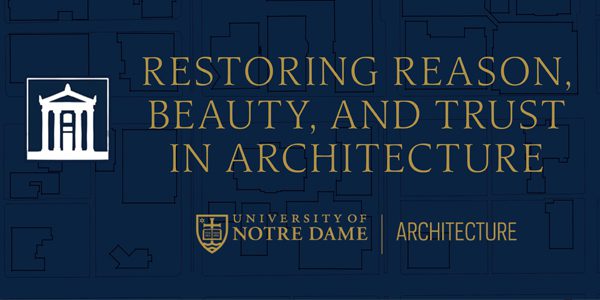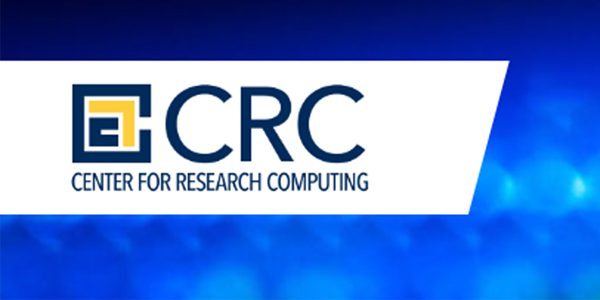Bridging the Divide 2020 – Civil Dialogue and Free Expression on College Campuses
Subscribe to the ThinkND podcast on Apple, Spotify, or Google.
Featured Speakers:
- Greg Miller is a junior at the University of Notre Dame studying Applied and Computational Mathematics and Statistics and Economics with a minor in Constitutional Studies. He is Co-President of BridgeND and Co-Founder of the Student Policy Network.
- Emily Garcia is currently a junior at Arizona State University studying Politics and the Economy with a certificate in Russian and East European Studies. She serves as BridgeUSA’s National Director of Youth Development.
- Ross Irwin is currently BridgeUSA’s Chief Operation Officer.
- Jane Wang, co- founder of BridgeEmory, a branch of BridgeUSA
- Riya Shah is the BridgeUSA Director of National Engagement and serves on Student Government at the University of Notre Dame.
The final session of the Bridging the Divide series included guests from BridgeUSA, a national organization focused on improving the state of political education and discussion. The session was moderated by Greg Miller, junior at the University of Notre Dame, Co-President of BridgeND, and Co-Founder of the Student Policy Network. The guests included Emily Garcia, junior at Arizona State University and BridgeUSA’s National Director of Youth Development; Ross Irwin, BridgeUSA’s Chief Operating Officer; Jane Wang, third-year history major at Emory University; and Riya Shah, BridgeUSA Director of National Engagement and student government member at the University of Notre Dame. These students shared their experiences with BridgeUSA and lessons they have learned regarding why civil discourse is critical, and how to create effective and respectful civil discourse.
The first topic of discussion focused on why civil discourse is critical and how to create conversations without intense polarization. Irwin explained how polarization rocks America and seeps into many parts of life, making America’s democracy incredibly ineffective. Civil discourse, as he shared, allows people to talk to one another and understand various perspectives. He highlighted how policy changes and other improvements needed to better America’s democracy will not be possible without effective communication and engagement across lines of difference. Garcia shared how empathy has to be the baseline of these conversations, and that having a moderator present allows for productive conversations that do not reach intense polarization, but rather allow those involved to hear, and hopefully better understand, differing perspectives. Wang built on these points by sharing how the aim of civil discourse should not be avoidance of discomfort, but rather a willingness of people to get uncomfortable and hear out different perspectives with an open mind.
Another key topic discussed was the topic of social media and “cancel culture.” Wang shared how the media poses a problem, as people tend to customize what they consume online to align with their personal views and what they are most familiar with. She emphasized how people have to ask themselves how their opinions are tailored by the media they are consuming, as many people get a majority of their news from social media. Shah touched on the idea of cancel culture by explaining how it is dangerous, as it makes people feel like they can’t share their opinions online in fear of being “cancelled.” However, as she added, it also allows for some accountability of people living out and acting on what they are posting on social media and avoidance of performative social media activism.
The discussion ended with an important conversation around how to create more environments among youth and create more political engagement. The guests shared how universities should avoid censoring students in order to create an environment that is not hostile. One way to do this, as they expressed, is to hire a director of national engagement to foster more fruitful engagement in university spaces and allow for more open discussions of various topics. They also shared how universities need to actively try to establish spaces where students can have respectful, politically diverse discussions. Universities need to encourage these spaces, invite being uncomfortable, and invite disagreement. Miller closed out the discussion by sharing that BridgeUSA, and organizations similar to it, are needed to allow students to engage in civil discourse and provide effective communication tools that are vitally important as these students rise to positions of power. He added to this idea by sharing that wherever one sits on the political aisle, there is a need for respectful civil discourse grounded in empathy in order to discuss important topics that are dividing American society.
- There will be no progress in this country if polarization continues and people remain unable to engage across lines of difference.
- Wherever you sit on the political spectrum, there is a need for respectful civil discourse and to engage in empathy to have important discussions that typically divide people.
- People must be willing to get uncomfortable and speak about difficult topics in order to hear different perspectives and find solutions to major issues confronting America.
- Cancel culture can be toxic in that it makes people feel that they cannot share their opinions, but it also allows for some accountability of what people post on social media versus how they actually live their lives.
- Universities need to actively trying to establish spaces where students can have respectful, politically diverse discussions, encourage these spaces, invite being uncomfortable, and invite disagreement
- Polarization racks this country, and I don’t need to go through all the parts of life that it seeps into, but really it’s making our democracy incredibly ineffective. We can’t get through the issues that matter, and we can’t find ways to move forward so that’s incredibly harmful to everyone in this country. So there are a lot of different things that people are thinking about about how to improve the system. Maybe it’s a different policy, maybe it’s a different way to vote, maybe it’s something about money, and that’s a great thing and people to get involved in those. But fundamentally, we won’t be able to move forward if we can’t engage across lines of difference. None of these kinds of things will be put through if we can’t work with one another, if we can’t talk with one another.” — Ross Irwin, 10:20
- “Being able to set up an environment, one that empathy is the baseline of these conversations, and then, two having students who are trained in moderation and how to have these productive conversations, really promotes great civic dialogue and for people to hear different perspectives without it reaching that elevated status.” — Emily Garcia, 11:40
- “I don’t think the goal should be, let’s avoid anything that’s uncomfortable and keep it comfortable. I think we need to be willing to get uncomfortable.” — Jane Wang, 16:25
- “[Cancel culture] is definitely dangerous and it makes people feel like they can’t continue to grow and share their own opinions and stuff. However, in the same way I do think that in a really odd way it does allow for some accountability, so for example if you’re posting about the importance of wearing a mask and Black Lives Matter stuff on your Instagram stories, but then also posting pictures of you on your private yacht with 25 of your closest friends disregarding the pandemic and it’s disproportionate effect on the minority communities, it’s clearly demonstrating like a type of hypocrisy and I think that’s a good example of that kind of performance social media activism.” — Riya Shah, 27:25
- “The role of BridgeUSA, I hope it was evident tonight through our panel, is needed that students are going to rise to positions of power and the question is, do we want those students to arrive having engaged in civil discourse with those tools and that’s vitally important that when we arrive to those positions of power we arrive there with those tools to create a better political climate for our nation.” — Greg Miller, 58:49
Related Content
How Cities Speak To Us
Professor Emily Talen joins the School of Architecture to share her work at The Urbanism Lab and its focal point at the University of Chicago for the study of the built...
View EventThe Black National Anthem & Parent’s Signing Off On Children Reading Black Books
In this week’s episode, Isaiah and Tykiera talk about some tweets about Black people that took Twitter by storm. They also talk about The Black National Anthem, Lift Every Voice...
watch videoTrusted AI Needs Trusted Data
In the buzz around AI, let’s not ignore the role of data for developing AI we can trust, says one Notre Dame computational scientist. Two years ago, Notre Dame launched the...
Read Article


